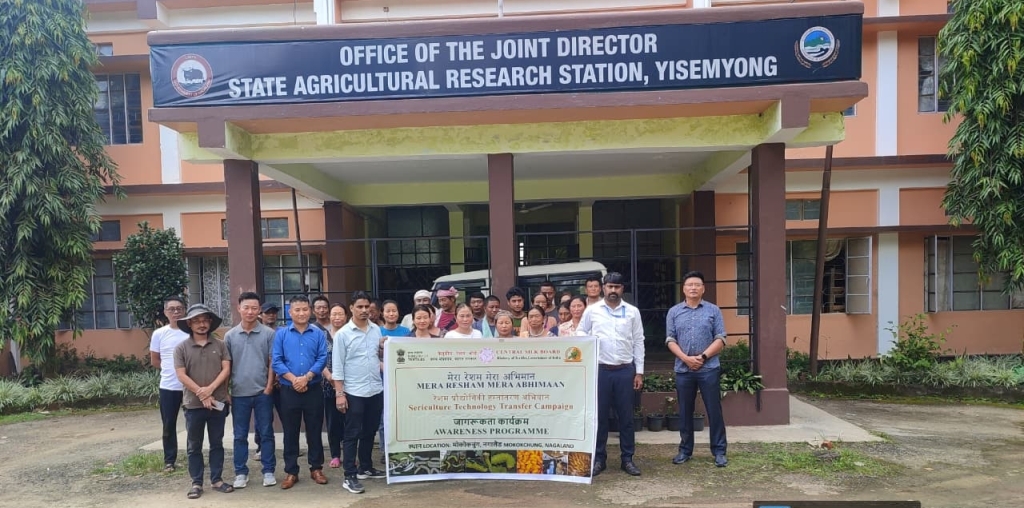THURSDAY, SEPTEMBER 04, 2025
- Home
- Awareness programme on sericulture schemes held at State Agricultural Research Station Yisemyong
Awareness programme on sericulture schemes held at State Agricultural Research Station Yisemyong
An awareness programme on sericulture schemes under the Mera Resham Mera Abhimaan campaign was held at the State Agricultural Research Station, Yisemyong, Mokokchung.
Published on Sep 4, 2025
By EMN
Share

DIMAPUR — An awareness programme on government schemes and convergence opportunities in sericulture was organised at the State Agricultural Research Station (SARS), Yisemyong, Mokokchung, on Thursday.
The event was held under the ongoing ‘Mera Resham Mera Abhimaan (MRMA)’ campaign by the Central Silk Board, Ministry of Textiles, in collaboration with the Department of Sericulture, according to an update.
The programme was aimed at educating local farmers about various central and state government schemes related to sericulture, with a focus on sustainable livelihoods and economic upliftment through Eri and Muga sericulture.
Also read: Naga Students’ Federation extends Teachers’ Day greetings
Dr. Ravi Kumara, a scientist from the Central Silk Board, Kobulong, was the chief resource person and spoke at length about the objectives of the MRMA campaign.
He highlighted the untapped potential of Eri and Muga sericulture in Mokokchung district and detailed several schemes being implemented under the Central Silk Board and Silk Samagra-2, particularly those targeted at promoting sericulture in the Northeastern region.
Nokzenketba Longkumer, sericulture extension officer, District Sericultural Office, Mokokchung, elaborated on state-sponsored schemes for farmers. He informed participants about assistance available for host plant garden establishment, construction of rearing houses, procurement of rearing appliances, and purchase of reeling and spinning machines.
He also explained the beneficiary selection criteria, subsidy details, application process, and direct benefit transfer (DBT) mechanisms.
Lipokonen Jamir, joint director, SARS Yisemyong, urged farmers to take full advantage of the schemes available and adopt the recommended package of practices for better productivity.
He shared success stories of progressive sericulture farmers in the district to encourage wider participation and emphasised the importance of cocoon marketing and value addition.

